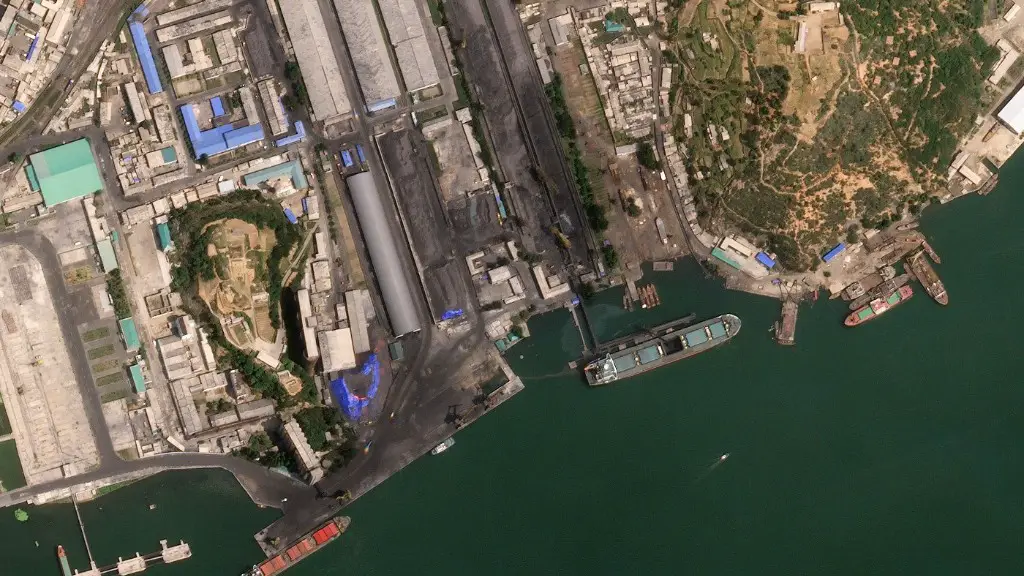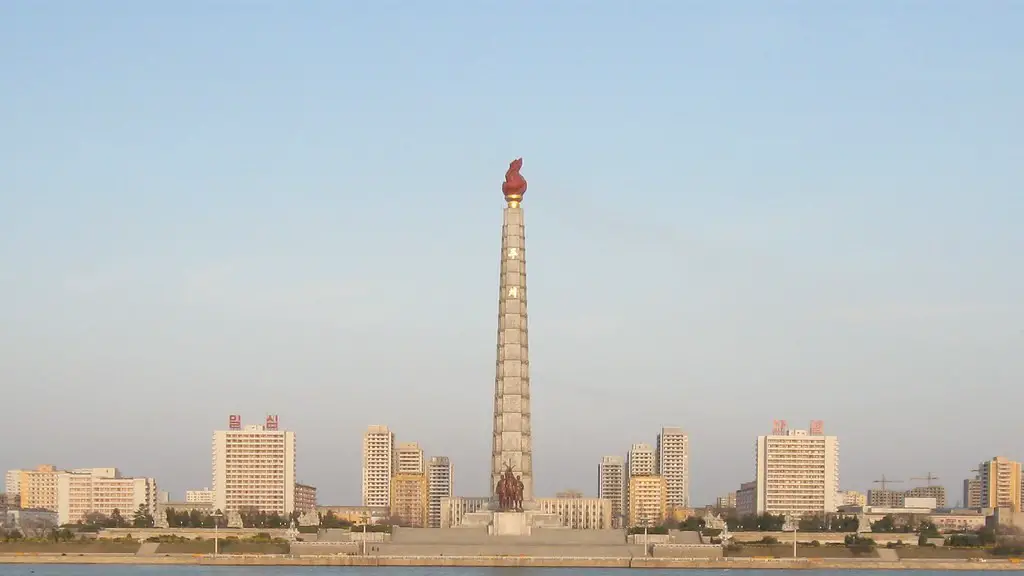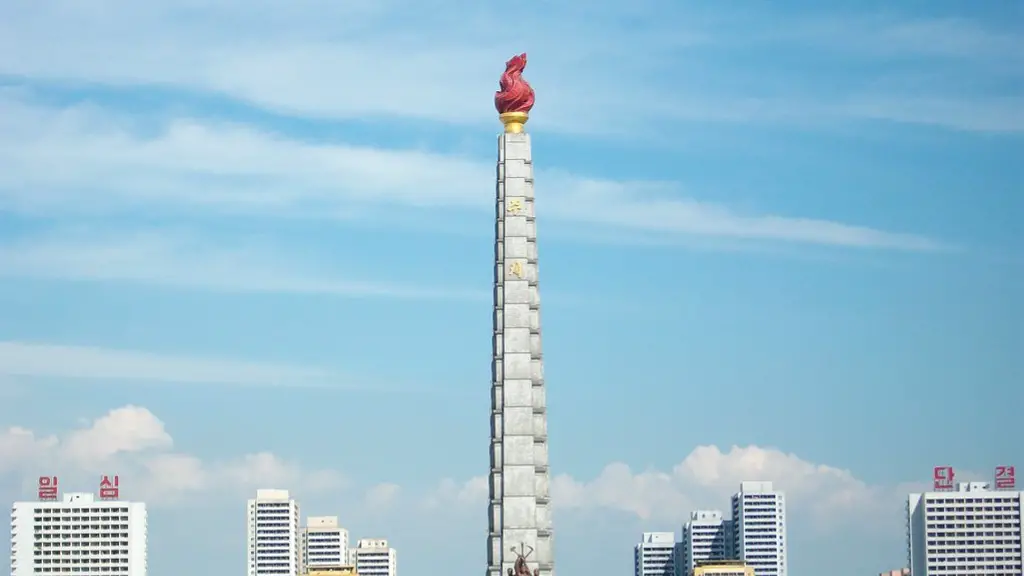Political Context of North Korea’s Denuclearization
North Korea’s nuclear program has been a point of contention since its development in the 1990s. For decades, North Korea has been entrenched in denial of its weapons and capability, while the US and other countries have striven to contain and reduce its nuclear arsenal. In more recent times, diplomatic openings have caused many to hope that the denuclearization of North Korea has become increasingly possible. President Trump’s open negotiations with the North Korean leaders have provided momentum to this development.
The political context of denuclearization is complex and controversial. As with many international agreements regarding nuclear weapons, the issue of trust is paramount. Questions remain over whether the North Koreans would genuinely uphold their denuclearization commitments. Most agree that meaningful, verifiable guarantee mechanisms must be put in place to ensure any agreed denuclearization deal is adequately enforced.
The US has long sought a complete, verifiable and irreversible denuclearization of North Korea, which would see all nuclear weapons removed from the Korean Peninsula and proper safeguards staying in place. This objective has commonly become known as the CVID strategy, standing for Complete, Verifiable, Irreversible Denuclearization. However, tensions remain between the US and other states such as China and Russia, each of whom have their own interests in the Korean Peninsula. Consequently, a denuclearization deal must reckon with the wider geopolitical situation and concerns of regional countries.
Security Implications of North Korea’s Denuclearization
Nuclear disarmament carries several security implications, both positive and negative. On the one hand, denuclearizing North Korea would reduce the risk of an armed conflict between the North and South. It could also reduce the risk of nuclear proliferation in the region, and improve the diplomatic standing of North Korea.
On the other hand, North Korea has voiced the need for security guarantees in return for denuclearization. The fear is that upon denuclearization, North Korea would become vulnerable to external threats, notably that of other nuclear powers such as the United States. Consequently, providing North Korea with appropriate security guarantees remain a crucial component of any denuclearization deal.
International Reactions to North Korea’s Denuclearization
International reactions to the denuclearization of North Korea have been varied. Particularly those from the nations directly involved in any such process. The United States and South Korea have welcomed the open dialogue with the North, though various others have been more reserved.
The Chinese have remained cautious. In the past, China has supported numerous initiatives for denuclearization, for example though the Six Party Talks in 2003. Yet on this occasion, China has been reluctant to accept any denuclearization deal that may undermine their own security.
For their part, the Russians, unlike the Chinese, have been quick to support the denuclearization process. Russia cites their own interests in the security of the region and the need to contain a nuclear North Korea. Consequently, they have offered to mediate and their own expertise in the verification process.
Domestic Reactions to North Korea’s Denuclearization
Domestic reactions in North Korea to denuclearization have been mixed. Staunch supporters of the North Korean regime have widely praised the dialogue between the North and the US, and view potential denuclearization positively as a pathway to peace. Many have been hopeful that peace agreements between North and South could accompany any denuclearization deal.
On the other hand, for some observers, recent geopolitical events have prompted concern over denuclearization. Some believe that denuclearization may weaken the nation’s diplomatic position and encourage the US to take military action against the North in the future.
There are also those within the nation who do not support the North Korean regime and what it stands for. The possibility of a denuclearization deal has been viewed warily by this group, who fear that it may end up simply being a way for the regime to maintain its power. Consequently, for many in North Korea, the denuclearization process is viewed with a sense of nervous trepidation.
Economic Consequences of North Korea’s Denuclearization
North Korea’s economy has suffered in recent years, in large part due to global condemnation and severity of international sanctions. In this context, many have suggested that a successful denuclearization deal could provide economic advantages for North Korea. It is argued that by complying with international agreements and denuclearizing, the North could reap economic incentives, both from the US and other countries in the form of renewed development assistance.
At the same time, some believe that denuclearization could lead to negative economic implications for North Korea. Many suggest that though a successful nuclear disarmament could open up foreign investment opportunities, it may not be sufficient to repair North Korea’s fragile economy. Denuclearizing is likely to occur alongside a reduction of military spending, which could limit the country’s activity and cash flow.
Technological Aspects of North Korea’s Denuclearization
Any denuclearization of North Korea would be an intricate and costly process, likely to involve teams of engineers and security experts. Verifying the denuclearization would require establishing strict monitoring and inspection protocols. Such protocols may need to include the use of sophisticated technology. This could require the use of satellite imaging, visual sensors, and radiation detectors to confirm that nuclear activities have ceased.
Moreover, existing nuclear sites would need to be cleared and dismantled safely. This would be an immense engineering feat and would require the relevant authorities to remain compliant with set protocols, such those associated with Environmental Impact Studies. By the same token, the process would need to be funded and supported by the relevant governments and international organisations.
Legal Aspects of North Korea’s Denuclearization
The process of denuclearizing North Korea would require compliance with numerous international legal norms and standards. The process itself would need to abide international agreements and procedures, while the devices and mechanisms associated with denuclearization would also likely be disputable under international law.
It is likely that denuclearization would be accompanied by some form of international tribunal to monitor and realise the process. The responsibility for such a tribunal would require sovereign states to work together, present evidence, and pursue appropriate remedies. In the past, such tribunals have proven to be a tricky and intense negotiation.
Consequently, denuclearizing North Korea would not only require technical and economic efforts, but also legal and diplomatic arrangements to ensure the process and its consequences remain predictable and maintainable.
Risks Associated with North Korea’s Denuclearization
Any process for denuclearization carries considerable risk. In the Korean Peninsula, these risks are numerous and include various security, economic and technological implications.
In the security field, the denuclearization process could increase the risk of armed conflict between North and South. The removal of nuclear weaponry from North Korea could leave the nation vulnerable to attack from external forces. There are also wider geopolitical risks associated with any such process, given that it must satisfy the interests of several involved countries.
From an economic point of view, denuclearization has the potential to leave North Korea poorer than before. A reduction in military spending could have an adverse effect on the nation’s cash flow and activity, while denuclearization could also limit the country’s diplomatic standing and the potential for foreign aid.
The technological aspects of denuclearization present their own risks. A variety of advanced technology and engineering must be employed to monitor and enforce the denuclearization and decommissioning of North Korea’s nuclear sites. The success of such technology will depend on the resources and cooperation of involved countries, which could be hard to achieve.
Humanitarian Issues Surrounding North Korea’s Denuclearization
While denuclearizing North Korea could bring a range of political, economic and security benefits, the most important factor amongst all of these could be the humanitarian one. It is well known that North Korea is one of the most impoverished countries in the world. Consequently, denuclearizing the Korean Peninsula could potentially offer a long-lasting and meaningful resolution to the plight of the North Korean people.
The most effective way to make this happen would likely involve the US and other countries supporting post-denuclearization efforts in North Korea. This could include renewing aid programmes and encouraging investment and other forms of assistance.
On the other hand, any humanitarian grievances arising from the denuclearization process would need to be addressed. North Korea has experienced a variety of infringements of humanitarian rights in recent times, including in the realms of healthcare, education, and freedom of speech. Consequently, any denuclearization process must remain mindful of such considerations and should involve potential remedy and reparation mechanisms.
Ethical Concerns of North Korea’s Denuclearization
The process of denuclearization of North Korea has again raised the spotlight on the ethical implications of nuclear prohibition treaties. The ethical debate centers around the concept of nuclear sovereignty and whether states have a right to maintain nuclear weapons as a way to protect themselves from external threats.
Denuclearizing North Korea can raise questions over whether the actions of one nation should be used to limit the rights of another, particularly when federal nuclear power has been employed as a bargaining chip. Moreover, many believe that North Korea should have the right to secure its own sovereignty without external influence, which again brings its own ethical questions.
Furthermore, ethical consideration is needed for the wider implications of any denuclearization on the Korean Peninsula. It is widely argued that the North Korean regime remains oppressive and oppressive and that denuclearizing could open the door to the regime to increase its abuses against its own people. Consequently, any process of denuclearization would require ethical considerations and oversight from independent experts and organizations.


